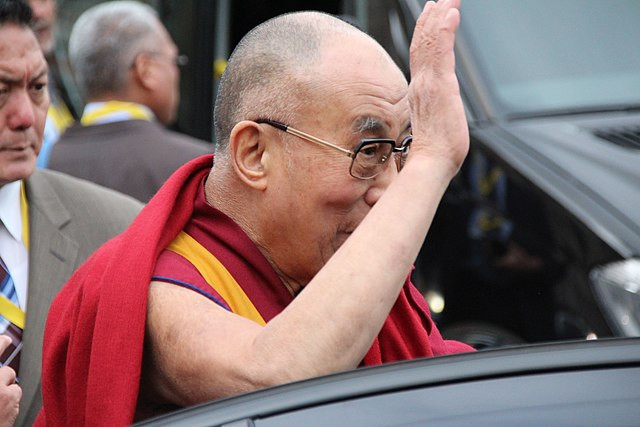A bipartisan U.S. congressional delegation met with the Dalai Lama in Dharamshala, India, on Wednesday, a move that has provoked a strong reaction from China. The delegation, led by Republican Representative Michael McCaul and including former Democratic House Speaker Nancy Pelosi, visited the exiled Tibetan spiritual leader's residence in the Himalayan town. This meeting marks a significant moment in U.S.-China relations, already strained due to various geopolitical tensions.
The visit comes at a time when Washington and Beijing are attempting to rekindle diplomatic dialogues that had stalled following the Trump administration's imposition of tariffs on Chinese goods. Relations further deteriorated due to the COVID-19 pandemic and escalating military tensions in the South China Sea and Taiwan Strait. The delegation's meeting with the Dalai Lama, who has been in exile since fleeing Tibet in 1959 after a failed uprising against Chinese rule, underscores the ongoing U.S. support for Tibetan autonomy-a stance that has consistently angered Beijing.
During the visit, the U.S. lawmakers also met with officials from the Tibetan government-in-exile, which has been seeking greater autonomy for Tibet. This administration is not recognized by Beijing, and the last dialogue between the Chinese government and representatives of the Dalai Lama occurred in 2010.
The Dalai Lama, aged 88, welcomed the delegation warmly. Addressing a crowd of hundreds waving American and Tibetan flags outside his residence, the U.S. lawmakers emphasized their commitment to the Tibetan cause. Pelosi highlighted the recently passed Resolve Tibet Act, which encourages dialogue between the Dalai Lama and Chinese officials. "This bill is a message to the Chinese government that we have clarity in our thinking and our understanding of this issue of the freedom of Tibet," she stated, receiving enthusiastic applause from the audience.
McCaul reinforced American support for Tibetan self-determination, stating, "Just this week our delegation received a letter from the Chinese Communist Party, warning us not to come here... but we did not let the CCP intimidate us for we are here today," as the crowd cheered.
China's reaction to the visit was swift and severe. Lin Jian, a spokesperson for the Chinese foreign ministry, urged the U.S. not to support Tibetan independence and warned against signing the bill into law. Lin stated, "It's known by all that the 14th Dalai Lama is not a purely religious figure, but a political exile engaged in anti-China separatist activities under the cloak of religion," urging the U.S. to avoid any contact with the Dalai group and to stop sending "the wrong signal to the world."
The Dalai Lama has consistently denied being a separatist, advocating instead for substantial autonomy and the protection of Tibetan Buddhist culture. He has a long history of engaging with U.S. officials, including presidents from Jimmy Carter to Barack Obama, although he has yet to meet with President Joe Biden.
The meeting comes ahead of the Dalai Lama's planned trip to the U.S. for medical treatment, though it remains unclear if he will meet with any U.S. officials during his visit. Historically, the Dalai Lama has met every sitting U.S. president since George H.W. Bush, with the exception of Donald Trump.
The lawmakers' visit is seen as a significant move to underscore the U.S. commitment to Tibetan autonomy at a time when President Biden is poised to sign legislation aimed at pressing Beijing to address Tibetan cultural and religious concerns. This legislation is a direct challenge to China's claim over Tibet and its policies aimed at integrating the region more closely with the rest of China.
While India hosts the Tibetan exiles, it officially recognizes Tibet as part of China. The visit by U.S. lawmakers is likely to add a new dimension to the already complex diplomatic relationships in the region. McCaul stated that the U.S. would not allow China to interfere in the process of naming a successor to the Dalai Lama, a significant issue given the controversy surrounding the Panchen Lama, the second-most important figure in Tibetan Buddhism.
Critics argue that Beijing's development efforts in Tibet come at the expense of erasing Tibetan culture, language, and religion. Penpa Tsering, president of the Tibetan government-in-exile, described China's actions as an unparalleled and unprecedented infliction of suffering and oppression on the Tibetan people.





